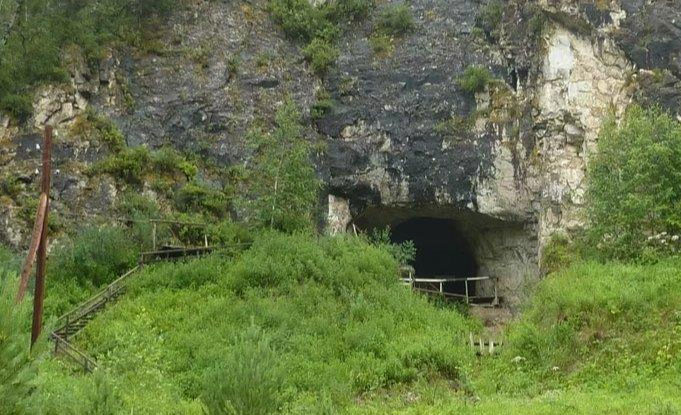Finding the remains of 'ghost humans' who once married Asian ancestors
Nearly 3,800 remains that actually belong to three Denisovans - a large but mysterious ghost human, lurking in the blood of many Asians - have been found in a cave in Siberia.
Before that, the remains of 7 other individuals had been found in Siberia or Tibet, but most were only faint traces, such as DNA mixed in the sediments of sacred caves in Tibet or a a few odd bone fragments in not really good condition.
Thus, they have long existed as a "ghost human" in the human family tree - there are no complete remains, but heterogeneous DNA from them still appears in the bodies of many modern humans, especially the Asian people.

Denisova Cave in Siberia
This time, however, Denisova Cave has provided 3,791 fossil bones in good enough condition to look for specific proteins in Denisovans DNA.
"We have specifically targeted these sediments, where no other human fossils have been found before," Dr Katerina Douka from the University of Vienna (Austria), told Live Science. It is a layer of soil that simultaneously contains many stone artifacts and animal remains, which may be important clues about Denisovan life and behavior.
The fossils are 200,000 years old, belonging to 3 Denisovan individuals. The stone tools they used bear similarities with the 250,000-400,000-year-old tools found in Israel, marking a period when ancient humans reached great changes in technology and use. fire. Notably, the artefacts in Israel belonged to other human species. This is the first time items from the Denisovans have been found.
Denisovans are another human species, estimated to have gone extinct about 30,000 years ago. Like Neanderthals, they intermarried with our ancestors Homo sapiens a lot, thus leaving many traces in the DNA of some modern human communities. At the time Homo sapiens appeared, on Earth there were about 8-9 different human species, but in turn became extinct, except for us.
- Prove human ancestors of Asian origin
- Discovered the mysterious 'ghost tribe' in West Africa
- The 'devil' in Asian myth is ... other humans have lived with us
- More than 800 million Asian men are descended from 11 ancestors
- Humans and sharks have the same ancestors
- New fossils show primates that have ancestors in Asia
- The human ancestors lived about 239,000 years ago?
- Make you go get married
- Humans carry the genes of Neanderthals?
- Ancient remains reveal our 'fishman' ancestors
- Discover the earliest ancestors of humankind
- Gorillas spread lice to humans
 Discovered an ancient centipede fossil 99 million years old
Discovered an ancient centipede fossil 99 million years old Discovered bat-like dinosaurs in China
Discovered bat-like dinosaurs in China Discovered a 200-year-old bronze cannon of the coast
Discovered a 200-year-old bronze cannon of the coast Discover 305 million-year-old spider fossils
Discover 305 million-year-old spider fossils